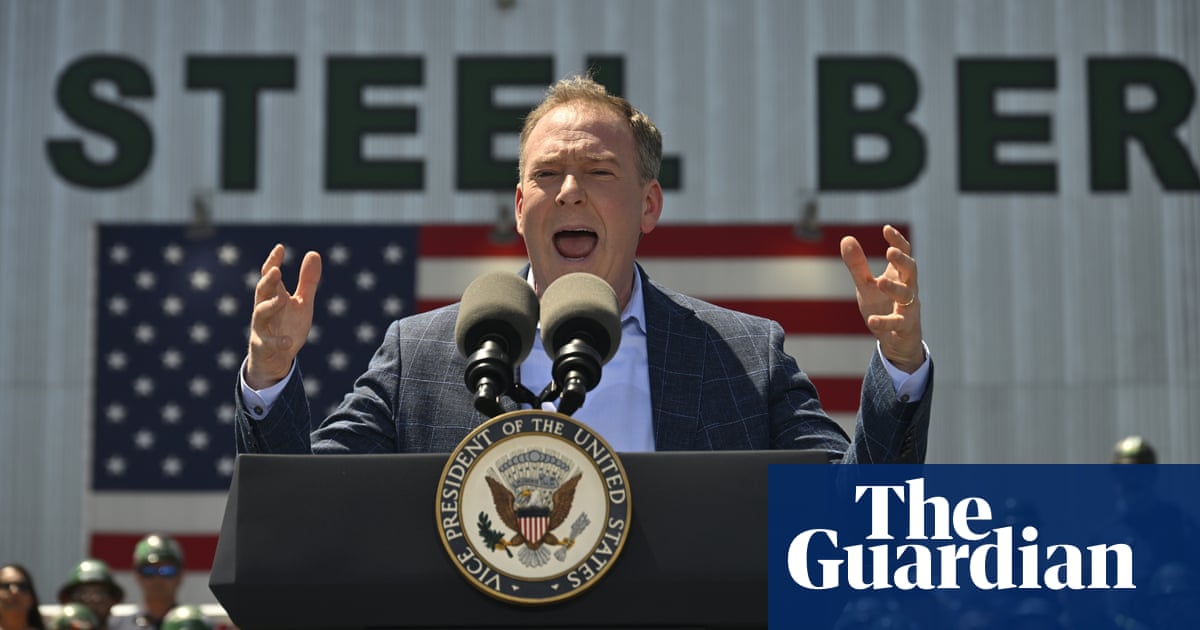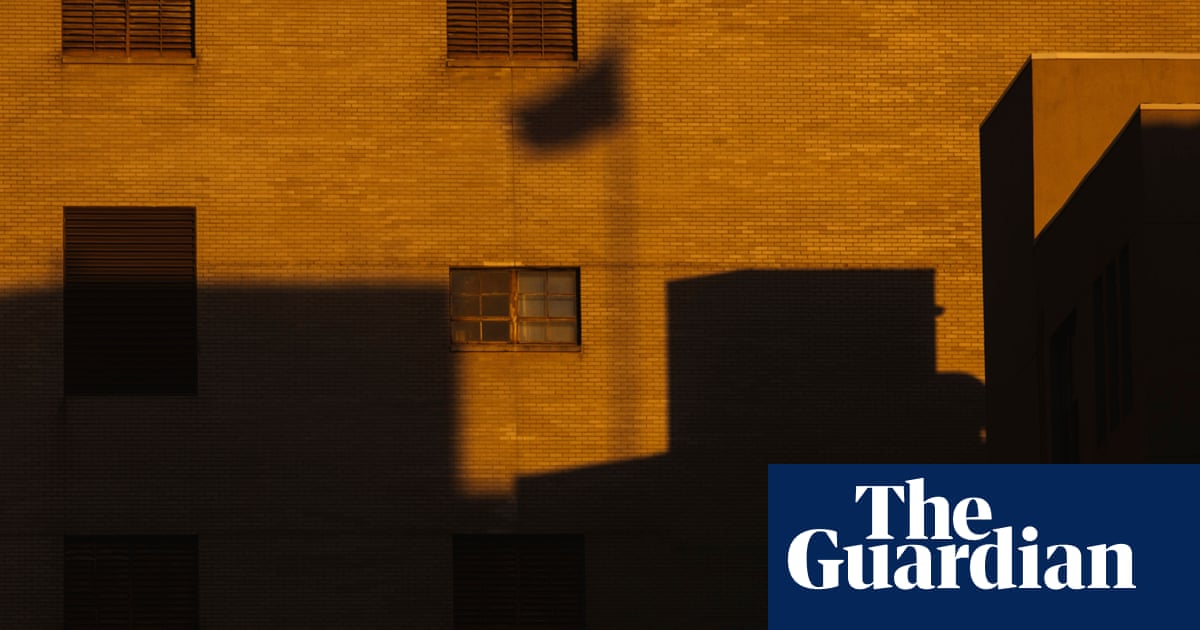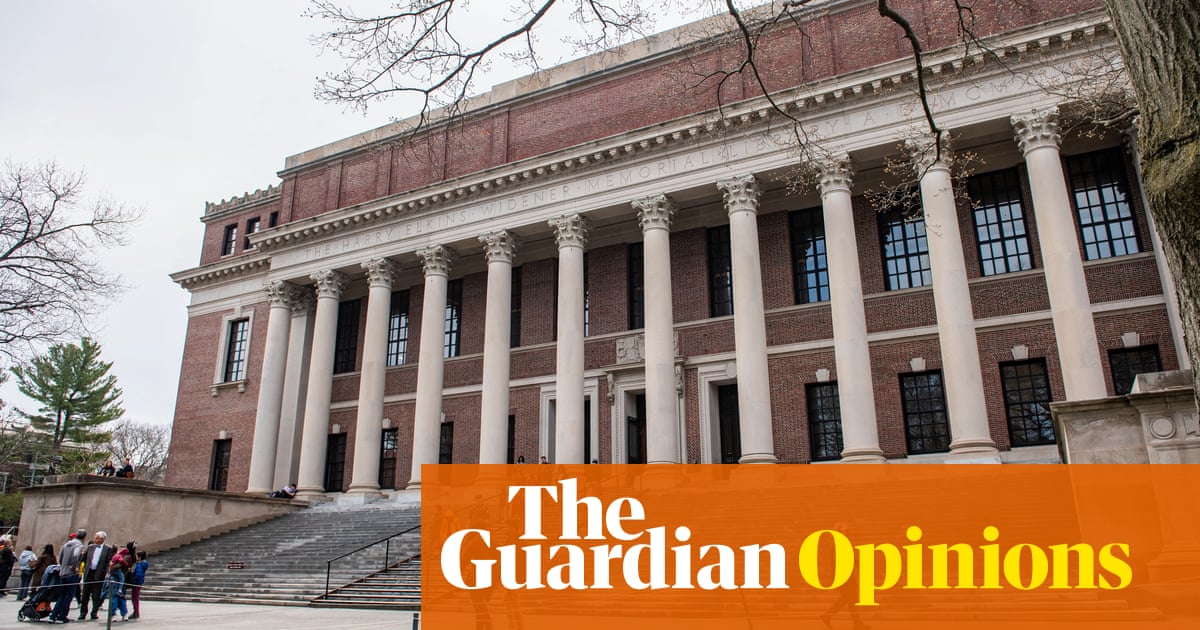“I have no doubt the government are watching,” said Ingrid Escobar, an activist lawyer who has proved a thorn in the side of El Salvador’s authorities. “There are cars that follow me – I have them identified.”
Since president Nayib Bukele launched a sweeping crackdown on gangs, Escobar has advocated for the tens of thousands locked up without due process. She points to a photo of Geovanni Aguirre, a childhood friend and trade unionist who worked in San Salvador’s mayor’s office. He disappeared into the prison system in 2022.
“The threat is real,” said Escobar. “There are activists and unionists in prison. There are others with arrest orders out for them. Yes, we are afraid.”
This is the dark side of the “Bukele model”, which extols an ultra hardline approach to crime spearheaded by a populist leader – but also entails an assault on civil society and democratic institutions, and the accumulation of near absolute power. All with soaring approval ratings.
It has made Bukele, 43, the envy of populist authoritarians worldwide, including many in and around the Trump administration. “President Nayib Bukele saved El Salvador,” TV host Tucker Carlson gushed after interviewing him. “He may have the blueprint for saving the world.”
But El Salvador’s embattled civil society and independent press – the only counterweights to Bukele’s power that remain – warn the regime may yet take a still darker turn.

“Bukele still benefits from his popularity, but El Salvador could go the way of Nicaragua, where public opinion has swung against the regime,” said Pedro Cabezas, an environmental defender. “And then it comes down to military control.”
Fears that Donald Trump might take cues from Bukele spiked last month when he deported more than 200 migrants to Cecot, El Salvador’s mega-prison, and then defied the supremecourt when it ordered that his administration “facilitate” the return of one of them, Kilmar Ábrego García.
For Salvadorians, this was reminiscent of Bukele’s actions back in 2020, when he defied a supreme court ruling to stop detaining people for violating quarantine during the pandemic.
Some now see this is a turning point.
Over the following years Bukele went on to march the army into the legislature to intimidate lawmakers; fire judges who opposed him; modify the electoral system in his favour; and start a state of exception, suspending Salvadorian’s constitutional rights, which shows no sign of ending.
Bukele followed the authoritarian playbook – with great success. Last year Salvadorians voted to give him an unconstitutional second consecutive term.
All of this has to be seen in the context of what life was like under the MS-13 and Barrio 18 gangs, said Amparo Marroquín, a professor at the Central American University. “The levels of violence were brutal, especially in the poorer neighbourhoods. It paralysed the social life of the country.”
By locking up 85,000 people without due process, many of whom likely have nothing to do with the gangs, Bukele provided a brutal solution. The gangs’ territorial control was broken, homicides fell, and many Salvadorians enjoyed a kind of freedom they had not experienced for years.
On the outskirts of San Salvador, one taxi driver pointed to the side of the road. “The gangs dumped bodies here like it was nothing,” he said. “Sometimes in pieces, over hundreds of metres.”
“It used to be that every time you left home you ran the risk of being robbed or even killed,” he said. “The president changed that.”
Bukele has ridden this wave of relief, with approval ratings consistently around 80% – even if this figure masks an undercurrent of fear.
“Around the same number say they would be afraid to express an opinion that was not aligned with the president,” said Noah Bullock, executive director of Cristosal, a human rights organisation. “And nobody in this country has any doubt that the government can do whatever it wants to whoever it wants.”
One veteran of El Salvador’s civil war, who asked not to be named, said he lost a teenage son to a gang shooting in 2010, and that he had been happy to see the gangs brought low.

“But now the soldiers bother us. I don’t feel safe, I don’t know how to explain it,” he said, searching for the words. “It’s like there are more gangsters with credentials in their hands.”
Now the only counterweights to Bukele’s power that remain are civil society organisations and the independent press – and he is turning the screws on both.
Bukele has portrayed both as political enemies working against him and the Salvadorian people, and the message has been faithfully amplified by his media machine.
“Bukele is like an antenna,” said Cabezas, the environmental defender. “Then there are the repeater antennae: the ministries, the legislative, all the institutions of the state. And then comes the army of trolls.”
At the same time, Bukele pressures civil society through regulations, audits and exemplary persecution, such as in the case of five environmental defenders who were at the forefront of El Salvador’s campaign to ban metal mining – which Bukele recently overturned.
“These leaders are known at the national and even international level,” said Cabezas. “Now, imagine you are someone who doesn’t have that kind of profile, and you see the state persecuting them. You’d wonder what they would do to you.”
Cristosal found that 86% of civil society organisations in El Salvador now self-censor to avoid reprisals.
Meanwhile journalists are subject to harassment and targeted with spyware.
“It has become normalised for security forces to demand journalists’ phones in the streets, to threaten them with arrest, or even hold them for a time,” said Sergio Arauz, president of El Salvador’s association of journalists.
Trump’s freezing of USAID, which supported 11 media outlets in El Salvador, and various civil society organisations, was a gift to Bukele.

Yet the government stops short of all-out repression – and journalists continue to produce damaging investigations into corruption and the negotiations Bukele’s government held with the gangs.
“I think Bukele understands that there is an international cost if he attacks journalists too much, and the question is whether he is willing to pay that cost,” said Marroquín.
“When you cross that line, there is no going back,” added Marroquín.
When Bukele was in the Oval Office last month, denying that he could return the wrongly deported Ábrego García, Trump was sat next to him, visibly admiring the spin and aggressive handling of the press.
“Sometimes they say that we imprisoned thousands,” said Bukele, as he defended his mass incarceration spree. “I like to say that we actually liberated millions.”
Trump smiled and asked: “Who gave him that line? Do you think I can use that?”
To what extent Trump wants to emulate the “Bukele model” is an open question, but it’s far from clear Bukele’s methods would work in the US, which both lacks a social crisis of the gravity of El Salvador’s gangs and still has a range of formal checks on Trump’s power, from the independent judiciary to the federal system.
“American democracy is more resilient – but Americans should not take it for granted,” said Juan Pappier of Human Rights Watch. “Bukele managed to destroy the Salvadoran democracy in two or three years. And putting institutions back to together is a daunting task.”

 German (DE)
German (DE)  English (US)
English (US)  Spanish (ES)
Spanish (ES)  French (FR)
French (FR)  Hindi (IN)
Hindi (IN)  Italian (IT)
Italian (IT)  Russian (RU)
Russian (RU)  6 hours ago
6 hours ago
























Comments